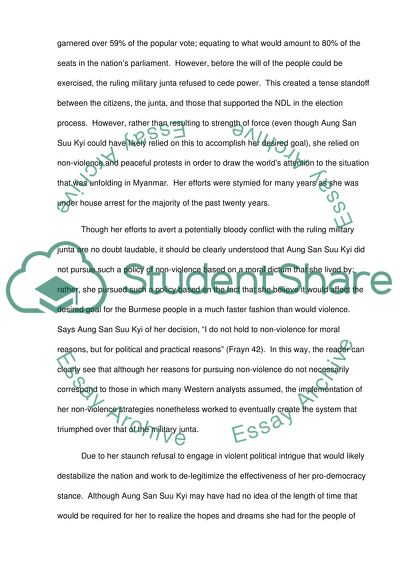Cite this document
(“Aung San Suu Kyi: An Analysis of Her Continuous Struggles to Achieve Essay”, n.d.)
Retrieved from https://studentshare.org/geography/1459383-world-geography-essay-question
Retrieved from https://studentshare.org/geography/1459383-world-geography-essay-question
(Aung San Suu Kyi: An Analysis of Her Continuous Struggles to Achieve Essay)
https://studentshare.org/geography/1459383-world-geography-essay-question.
https://studentshare.org/geography/1459383-world-geography-essay-question.
“Aung San Suu Kyi: An Analysis of Her Continuous Struggles to Achieve Essay”, n.d. https://studentshare.org/geography/1459383-world-geography-essay-question.


